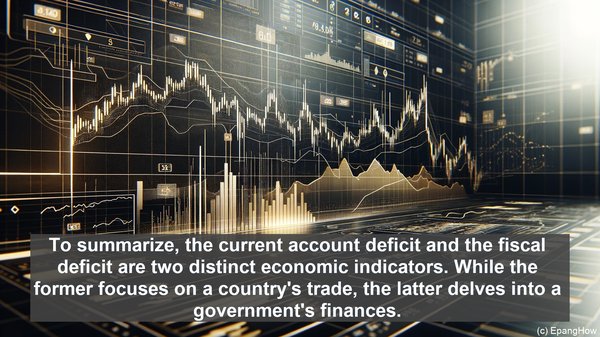Introduction: Two Key Economic Indicators
Hello everyone! Today, we’ll delve into the world of economics and explore the differences between two crucial indicators: the current account deficit and the fiscal deficit. While they may sound similar, they have distinct meanings and implications. So, let’s dive in!
Current Account Deficit: A Measure of Trade
The current account deficit primarily focuses on a country’s trade. It’s the difference between the value of a nation’s imports and its exports over a specific period. Essentially, it’s a measure of how much a country is spending on foreign goods and services compared to what it’s earning through exports.

Factors Influencing the Current Account Deficit
Several factors can contribute to a current account deficit. One significant factor is the trade balance, which is the difference between the value of a country’s exports and imports. Other elements include remittances, foreign aid, and investment income from abroad.

Implications of a Current Account Deficit
A current account deficit isn’t necessarily a negative indicator. It can signify a growing economy, as it often means a country is investing in infrastructure, technology, or other areas. However, a persistent and large deficit can lead to concerns about a nation’s economic stability and its ability to repay debts.
Fiscal Deficit: A Measure of Government Spending
In contrast, the fiscal deficit focuses on a government’s finances. It’s the difference between a government’s total expenditures and its total revenue over a specific period. It’s essentially a measure of how much a government is spending compared to what it’s earning through taxes and other sources.
Factors Influencing the Fiscal Deficit
Several factors can contribute to a fiscal deficit. Increased government spending, particularly on areas like infrastructure, social welfare, or defense, can widen the deficit. Additionally, a decrease in tax revenue or an economic downturn can also impact the fiscal deficit.
Implications of a Fiscal Deficit
A fiscal deficit can have both short-term and long-term implications. In the short term, it can stimulate the economy, particularly during a downturn, as increased government spending can create jobs and boost demand. However, a persistent and large deficit can lead to concerns about inflation, increased borrowing, and the burden on future generations.
